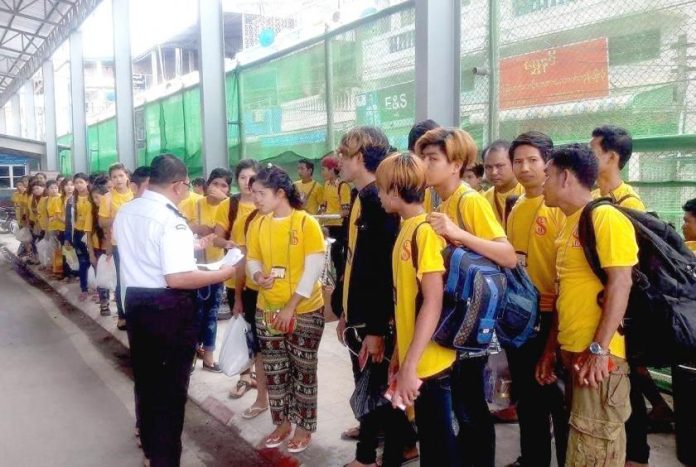Myanmar has begun taxing nationals who work overseas in a seeming effort to boost foreign-currency inflows, raising fears among employers of appearing to indirectly support the military government. Since mid-December, Myanmar’s embassies in key Asian countries have announced a series of new tax rules for nationals living in their jurisdictions.
Myanmar nationals in Japan are now basically subject to a 2% income tax, paying set tax amounts depending on income bracket. Those in South Korea, Singapore, Thailand and Malaysia also face a 2% tax rate as a general rule, though the final amounts owed vary with residency status and income level. Failure to pay is expected to impact their ability to renew passports.
Under tax reforms for fiscal 2023, Myanmar began requiring nationals living abroad to pay income taxes in the foreign currencies they earn, effective Oct. 1. But it had not released further details, including on necessary procedures. Authorities are now expected to collect back taxes going back to October using the new rules. Although the bill for each taxpayer is not large — someone in Japan could pay as little as 1,000 yen ($7) per month after tax credits — Myanmar could secure significant tax revenue, depending on how thoroughly it enforces the new scheme. At least 2 million documented Myanmar migrants work in Thailand, meaning that Myanmar’s military government will receive 300 million baht ($8.6 million) a month from them alone, independent news outlet Irrawaddy estimates.
In light of the new income tax, some businesses worry that hiring Myanmar talent could be seen as supporting the military regime. After the military took control of the government in February 2021, human rights experts and organizations expressed concern that taxes paid by businesses and workers in Myanmar would fund the military, indirectly contributing to a crackdown on pro-democracy forces and other abuses. Some companies already see hiring Myanmar workers as backing the military government, staffing agencies say. How investors and human rights activists view the new tax scheme has become a key concern as more Myanmar nationals seek work in Japan and South Korea.
But companies need not avoid hiring Myanmar talent, according to a lawyer versed in human rights in business. “The thinking that taxes directly contribute to Myanmar’s military government is not necessarily mainstream,” the lawyer said. There is also concern over how the new tax scheme would financially affect Myanmar workers abroad. “Employers have already consulted with us about it, and some are shouldering the tax themselves,” said Mitsuru Nishigaki, head of a Japanese-affiliated staffing agency in Yangon.
Nikkei Asia




















